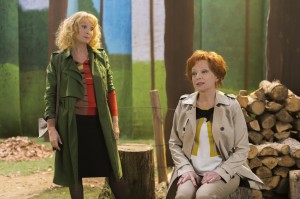My “Global Discoveries on DVD” column for the Winter 2015 issue of Cinema Scope. — J.R.
For now the truly shocking thing was the world itself. It was a new world. and he’d just discovered it, just noticed it for the first time.
— Orhan Pamuk, The Black Book
I: Some Conspicuous Absences
As a rule, this column has been preoccupied with what’s available in digital formats, but I’d like to start off this particular quarterly installment with a list of some of the things that aren’t available, at least not yet. This alphabetical checklist is by no means even remotely exhaustive and is entirely personal, based on a few of my recent experiences:


Alain Resnais (two titles): The two most glaring lacunae here are Resnais’ first major film and the last of his features, neither of which can be found yet with English subtitles. Les Statues meurent aussi (Statues Also Die, 1953), written by Chris Marker, a remarkable half-hour essay film about African sculpture, also qualifies as his own first major film work –- its beautiful and corrosive text is the first one Marker chose to print in his (still untranslated) two-volume 1967 collection Commentaires. It appears that the film’s unavailability on DVD or Blu-Ray in subtitled form can be attributed to two forms of censorship -– French political censorship when the film first appeared (which lasted for several decades), and North American capitalist censorship (which is apparently still in force). Read more
Il Cinema Ritrovato DVD Awards 2017
Jurors: Lorenzo Codelli, Alexander Horwath, Lucien Logette, Mark McElhatten, Paolo Mereghetti, and Jonathan Rosenbaum. Chaired by Paolo Mereghetti.
PERSONAL CHOICES
Lorenzo Codelli: Norman Foster’s Woman on the Run (1950, Flicker Alley, Blu-ray). A lost gem rescued by detective Eddie Muller’s indefatigable Film Noir Foundation
Alexander Horwath: Déja s’envolé la fleur maigre (Paul Meyer, 1960, Cinematek/Bruxelles, DVD) and Il Cinema di Pietro Marcello: Memoria dell’immagine (2007-2015, Cinema Libero/Cineteca di Bologna, DVD). Regarding the latter: with this cinematheque-style DVD, subtitled in English and French, one of the greatest contemporary filmmakers, whose work is still under-appreciated outside Italy, receives his rightful chance for global recognition.
Lucien Logette:
Tonka Šibenice (Karel Anton, 1930, Czech Republic, Národní filmový archiv/Filmexport Home Video, DVD)
One of the first Czech sound films. Like many great films of that era, it reflects several influences: expressionism, social realism, Kammerspielfilm, the art of Soviet photography, all used remarkably, without imitation. It contains all the great themes of the end of the silent period: the opposition between the city and the countryside, the misdeeds of modern society, frustrated loves ending in drama, themes served by an astonishing visual beauty.
Mark McElhatten: Kafka Goes to the Cinema (Munich, 4 DVD box set, Edition Filmmuseum). Read more
Published by Santa Teresa Press (in Santa Barbara) in 1994 (twenty years later, this book is still available on Amazon) and reprinted in Discovering Orson Welles in 2007, along with the following introductory comments:
Critic Dave Kehr once said to me that encountering The Cradle Will Rock after The Big Brass Ring was a bit like encountering The Magnificent Ambersons after Citizen Kane. I appreciate what he meant — especially when it comes to this script’s nostalgia and its sharp autocritique compared to the more narcissistic and irreverent surface of its predecessor. But I hasten to add that this script, unlike The Big Brass Ring, is more interesting for its autobiographical elements than for its literary qualities. Perhaps for the same reason, writing an afterword about it was more difficult.
On the subject of Tim Robbins’s Cradle Will Rock,I’d like to quote excerpts from an article of mine that appeared in the Chicago Reader on December 24, 1999:
For the past seven months, ever since Robbins’s movie premiered in Cannes, friends and associates who saw it there have been warning me that I, as an Orson Welles specialist, would despise it. Writer-director Robbins does make the character of Welles (Angus MacFadyen) a silly boozer and pretentious loudmouth without a serious bone in his body — something closer to Jack Buchanan’s loose parody of Welles in the 1953 MGM musical The Band Wagon than a historically responsible depiction of Welles in 1937. Read more


